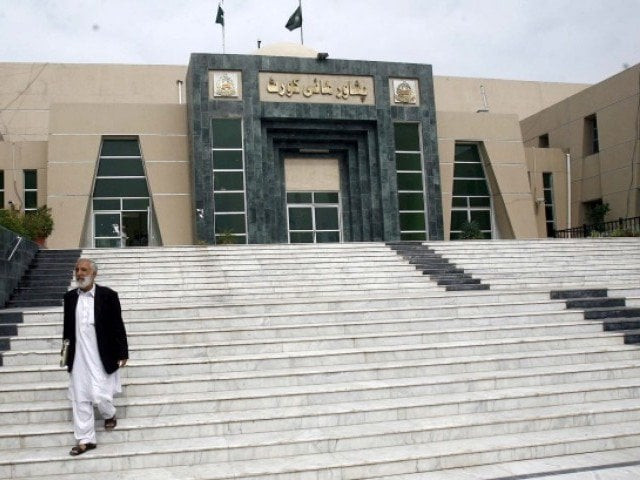K-P speaker challenges PHC oath-taking order
Review petition contends 'what cannot be done directly cannot be done indirectly'

Khyber Pakhtunkhwa Assembly Speaker Babar Saleem Swati on Monday filed a review petition against the recent directive from the Peshawar High Court (PHC).
The court had instructed him to administer oaths to opposition MPAs elected to reserved seats, setting the stage for a legal battle amid political tensions.
The move comes as the standoff between the opposition and the provincial government over the assembly session for the oath-taking of MPAs elected on reserved seats for women and minorities has intensified.
In response to the PHC's March 27 verdict, Speaker Swati, represented by Advocate Ali Azim Afridi, lodged the petition.
The plea listed the Election Commission of Pakistan (ECP), the K-P government, the Senate, and eight MPAs-elect as respondents, urging the PHC to review its decision and dismiss the opposition lawmakers' petition.
In the review plea, Swati contended that the high court order failed to grasp the factual context regarding the requisitioned session. It highlighted the absence of information regarding the summoning of a session for the upcoming Senate elections or the inclusion of the matter in question as Agenda Item No. 1 of the first business day.
"The office of the speaker holds no information...let alone inclusion of matter in question as Agenda Item No. 1 of the first business day," the petition argued, emphasising a fundamental legal principle.
“It is [a] cardinal principle of law and justice that what cannot be done directly cannot be done indirectly,” the petition contended.
Meanwhile, speaking to the media, Swati reiterated outside the PHC that no session of the K-P Assembly had been convened. He asserted his commitment to presenting the facts before the judiciary and respecting the rule of law.
“No session had been summoned from our side, which is why we cannot implement this order. This order could have been implemented when a session [of the assembly] had been summoned."
"If someone wants to say anything for point-scoring, they may do so," he added, reaffirming the adherence to legal procedures and respect for the judiciary.
"We, the followers of Imran Khan, believe in the rule of law...If we, who are trying for this (rule of law), will violate it, then how can we expect the rule of law to be established in this country?" Swati emphasised.
When questioned about the status of the Senate polls in the province scheduled for the following day, Swati deferred to the Election Commission of Pakistan (ECP) for clarification. He asserted that, based on legal advice, the K-P governor lacked the authority to convene a session.
"We are ready to summon an [assembly session] round the clock," the speaker asserted.
Last month, a controversy erupted as KP Governor Haji Ghulam Ali summoned the assembly session for March 22. However, the provincial government deemed the move contrary to the rules and the Constitution, declining to enforce it.
Subsequently, opposition members staged demonstrations against the government, alleging attempts to impede the participation of women and non-Muslim MPAs in the upcoming Senate polls.
On March 25, over a dozen candidates from the province's opposition, notified by the ECP for reserved seats, appealed to the PHC to ensure their oath-taking before the Senate elections scheduled for April 2 (today).
Among the petitioners were six women MPAs-elect from the Jamiat Ulema-e-Islam-Fazl (JUI-F) and eight returned candidates from the PML-N and PPP.
On March 27, the PHC directed Swati to administer oaths to the MPAs elected on reserved seats for women and non-Muslims and facilitate their voting in the Senate elections.



















COMMENTS
Comments are moderated and generally will be posted if they are on-topic and not abusive.
For more information, please see our Comments FAQ